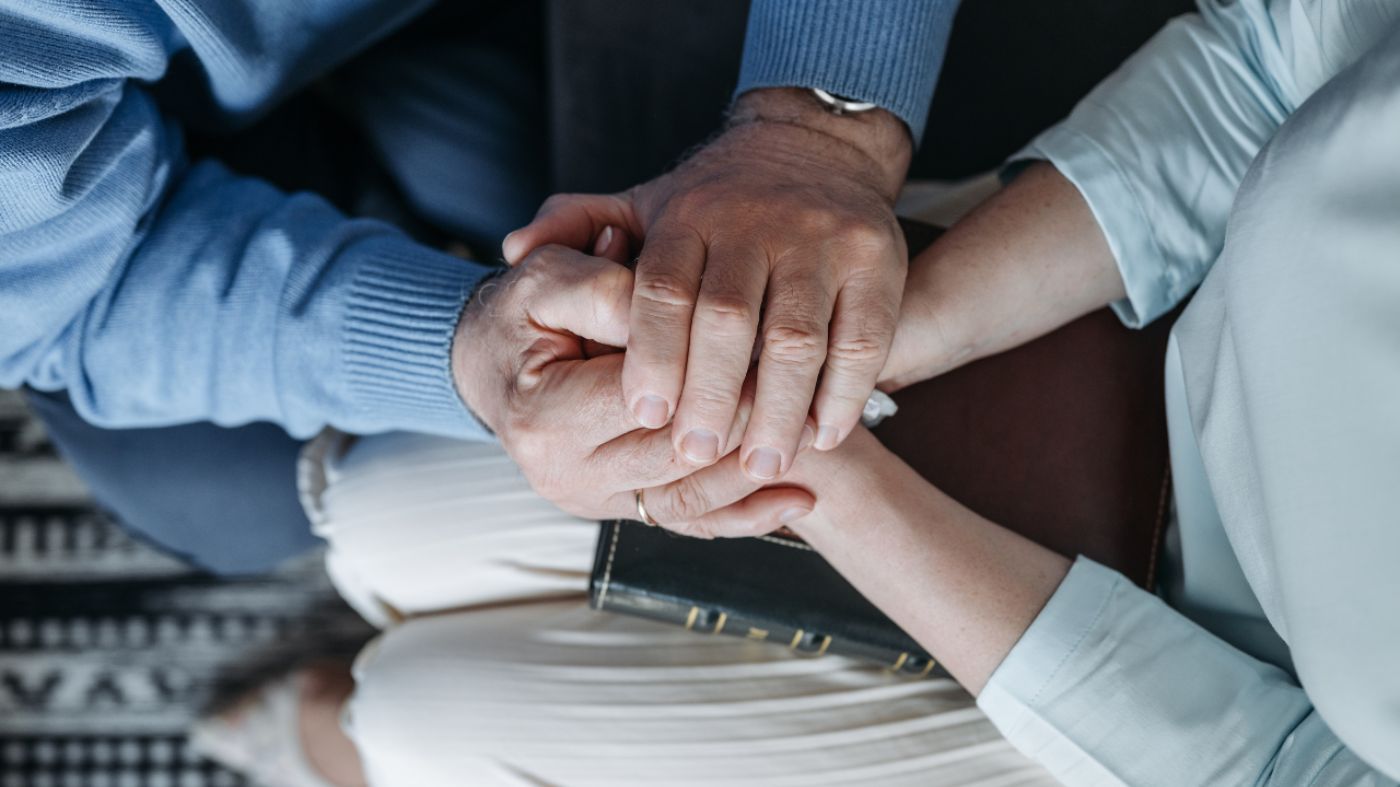
Rulebooks exist for nearly every facet of life, from fixing a car and training a puppy to building a computer, managing your finances, raising a child and everything in between. However, when it comes to facing what may be the toughest obstacle of our lives — the loss of a loved one — there is no manual to explain the right or wrong way to grieve or how to feel.
One thing is certain is that loss of a loved one has a tremendous impact on people’s mental and physical health. Those who are grieving may experience trouble sleeping, loss of appetite, problems concentrating, difficulty making decisions, feelings of extreme stress, numbness, shock or fear, guilt over still being alive or anger at their loved one for leaving them.
Studies show that people suffering from the loss of a loved one’s passing can experience up to 17% higher levels of inflammation, which can be linked to serious health risks such as heart attacks and strokes. Mourning also negatively impacts a person’s immune system and ability to fight off infections, especially for older adults.
Although everyone copes with loss differently and in their own way, there are some things you can do to ease some of the pain and ensure you’re able to focus on what’s most important — healing.
Take this time to slow down and scale back on your commitments and responsibilities. Now is when you should be focusing on processing your grief and working through your feelings. It’s ok to say no to some activities and take time for yourself.
As hard as it may be, try as much as possible to maintain your daily routine — continuing to get up, eat meals and go to bed at the same time. This will help minimize trouble sleeping, as well as loss of appetite. Making healthy food choices is important to fighting off the effects of a weakened immune system, as is exercising. Mealtimes can be particularly hard for those grieving the loss of a loved one. To help ease the pain, try turning on the radio or TV or scheduling one meal a day with friends or family, or through a local community center.
Don’t neglect to take all of your medications as prescribed. This is especially important, as you don’t want to further strain your body by potentially causing other health problems as a result of skipping your medications.
Do you like to read, crochet, work on cars, garden, bird-watch or take photos? After the loss of a loved one, you may find that you have more time on your hands. To avoid being consumed by loneliness and a potentially empty, quiet house, fill your day with activities that bring you joy and help keep you busy.
Some people are more comfortable than others when it comes to expressing themselves. Support groups and therapy might be exactly what some people need. But for others, the idea of talking through their feelings can seem scary and stressful. That’s ok! Instead, consider relieving tension and expressing yourself in other ways, such as keeping a journal, writing letters to your loved one, playing an instrument, singing or creating a piece of art. Or, try going for a hike, participate in a yoga class or sign up for a martial arts class.
This may be one of the most difficult things to do right now, but it’s also one of the most important. Practicing gratuity will help remind you of the things you still have and cherish rather than what you’ve recently lost. And, the more you think about the things for which you’re grateful, the more you’ll feel grateful.
When you’re ready to start considering how to move forward, you may find that one of the biggest struggles you’re facing is loneliness. One of the best ways to combat that, as well as give yourself a new sense of purpose is to welcome a pet into the household. If you don’t feel comfortable taking on the responsibility of a dog, consider opting for a cat or bird. Pets also are known to reduce stress, make people feel loved and encourage physical activity.
Timing is different for everyone, but at some point, you’ll want to think about ways to combat long-term isolation. Ease back into social situations, potentially by seeking one-on-one interactions as opposed to large group gatherings, which can quickly become overwhelming. Or, seek new opportunities, such as volunteering or participating in activities at a local community center or library.
Whether you need a sympathetic ear or comfort, someone to meet for lunch or assistance navigating your new lifestyle that may include a variety of activities you’ve never done before, don’t be afraid to ask your loved ones for help. Remember, you should be spending this time working through your feelings and processing your new reality, not stressing out about tackling life all by yourself.
After the loss of a loved one, many people find solace in joining a grief support group. Check with local hospitals, religious groups and local government agencies to find the right fit for you. Not feeling the group setting? Instead, opt for one-on-one talk therapy with a counselor, which can help you discover ways to express your emotions and learn how to accept and work through your loss.
Dealing with the death of a loved one is one of the most difficult and unavoidable experiences anyone can face. At Upside, we understand these hardships and are dedicated to assisting older adults in managing this major life change with as little disruption to their life as possible. Contact an Upside Manager today to find more about how we help older adults age in the right place and live healthier, happier and more independent lives.